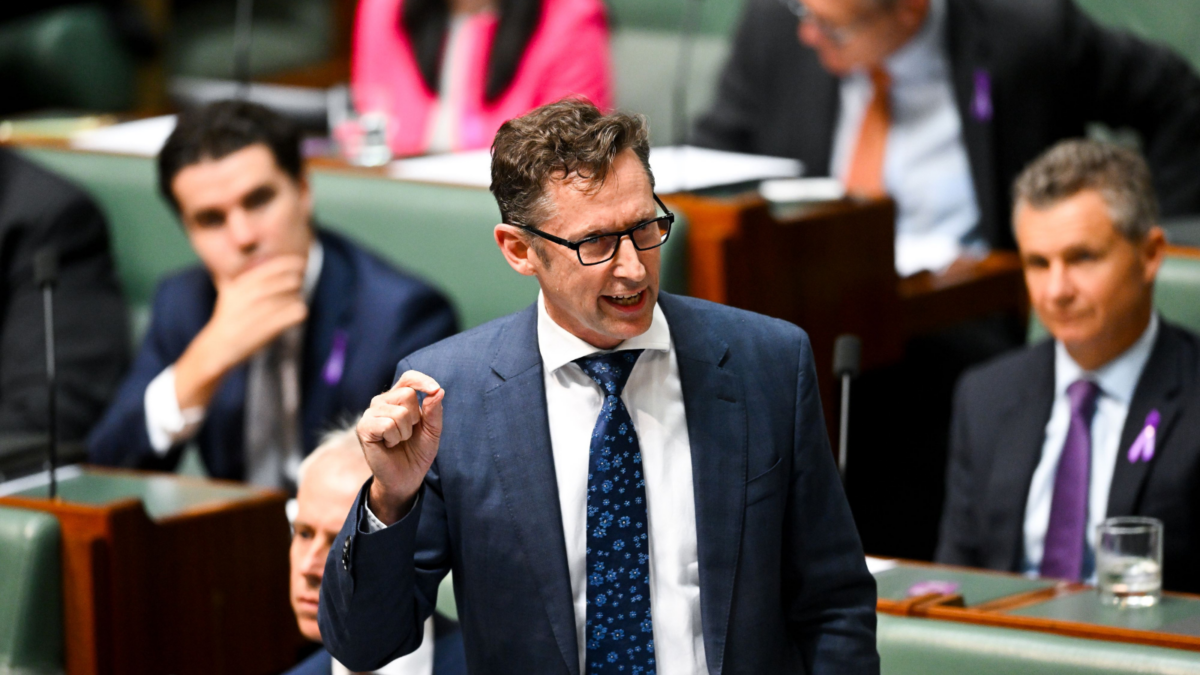‘Ongoing work’: Jones flags more YFYS changes
Speaking at an Industry Super Australia pre-budget event on Thursday (April 13), financial services minister Stephen Jones said that the recent changes to the Your Future Your Super (YFYS) performance test were only the start.
“We’ve provided our initial response, which is what we thought we could get away with between when I received and was able to read (the review) just after Christmas and what we can put in place between a fund perspective and a regulator perspective before the next test kicks in in August,” Jones said. “What we’ve announced is our initial response to the review… and there is ongoing work in response to the hard work and submissions that many in the room have put to government.”
The review extended the look-back period to 10 years from eight, added a range of new and disaggregated benchmarks, and extended the performance test to trustee-directed products, which in Jones’ reckoning will see more than 800 products covered beyond the 75-odd MySuper products to which the test is currently applied.
“You should look at that as an initial response – it’s quite literally what we could get up and running so that you guys could respond to it and the regulator could respond to it,” Jones said.
Jones also defended the government’s calls for funds to partner with them on nation building projects, saying that if the returns on offer aren’t in members’ best interests than they “shouldn’t pass muster”.
“But if we can find a project that the government says is important and that project can be structured in a way that it provides a great return for an investor, why wouldn’t we want to partner up with superannuation funds to get a great outcome in the national interests and a great return for members? We’d be nuts not to do that.”
Jones said that most nation-building projects were already happening organically – that it’s “pretty hard to find” a port, airport, road or railway in Australia that isn’t owned in whole or in part by a super fund – and that it made more sense to partner with domestic investors than international pension funds.
“As we sit today, there are super funds of workers in Canada, in North America, Denmark, Singapore whose representatives are here in Australia saying they want to invest in some of the stuff we’re doing”,” Jones said. “Whether it’s housing, commercial property, infrastructure or healthcare delivery – we say to ourselves, as a government, that it’s a bit weird if we’re partnering up with the super funds of workers in other countries to deliver projects of a social benefit but we’re not doing it with our own citizens’ super funds.”
Still, Jones conceded that the debate on nation-building – which was characterised by fears that member money would be directed into ‘white elephant’ projects – got away from the government.
“This might shock you: the people who have malevolent interests in relation to superannuation might twist the truth a bit,” Jones said. “Frankly, there was a whole bunch of hysterical stuff being said… We’ve got to be out there communicating it, but I think everybody inside the industry knew exactly what we were talking about because we’d had lots of discussions with industry about whether we could make this stuff work.”
Jones also touched on the objective of super, which the government is hoping to legislate this year, saying it would end the debate around “kooky” uses for super like paying down HECS debt or buying a house.
“You know what lies at the heart of all of (those ideas)? A failure in some other area of public policy; domestic violence policy, healthcare policy. If we try and make super the answer to every other failure in public policy, it will fail in the one it was set up to address – to provide all Australians with a dignified retirement and savings for that purpose.”
Photo via AAP











